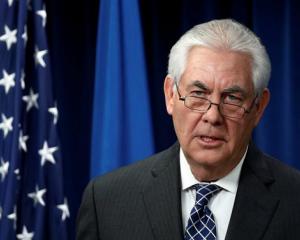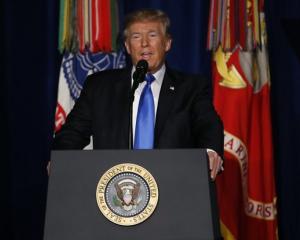The news yesterday that another three New Zealand soldiers had been killed in Afghanistan was shocking and sickening. Still reeling from the deaths in a gunfight a fortnight ago of Lance-corporals Pralli Durrer and Rory Malone, the army and the nation have taken another heavy blow. The latest deaths - of Lance-corporal Jacinda Baker (26), a medic, Private Richard Harris (21) and Corporal Luke Tamatea (31) - happened when their Humvee was hit by a roadside improvised explosive device. Lcpl Baker was the first New Zealand woman to die in war since the Vietnam conflict. Their deaths took the number of New Zealand soldiers killed in Afghanistan to 10.
A widespread reaction two weeks ago, including this newspaper's editorial response, was New Zealand should see out its commitment and stay the distance - expected to be until the end of next year - as planned.
Whatever the imperfections of the mission and the fears for its aftermath, New Zealand should be good for its word and its international undertakings and should honour what the soldiers had died for.
But the death of another three soldiers and uncertainty about what lies ahead puts Prime Minister John Key and the Government in a dilemma. What happens if the violence, in what was once considered a relatively safe part of Afghanistan, continues to escalate?
What happens if deaths among this small country's contingent of 140 in the Provincial Reconstruction Team in Bamiyan become frequent; if the tragedy of five deaths in two weeks is more than just a terrible blip?
Will the price of blood spilt in some foreign field in which New Zealand has next to no direct interest be too high?
The body bags returning to the United States in a seemingly unwinnable war destroyed that country's resolve in Vietnam, and has done the same for Afghanistan. The impact of death and serious injury spreads far beyond the army family and into the lives of many households and communities. So it is, too, for New Zealand. Every death, as well as having a national impact, spreads personal ripples of grief and concern across the land.
When a populace feels right is on its side, or when threats are direct, feelings are mobilised which enable societies to send many of its young to face possible death. But democracies do not cope with mounting casualties when the cause is at all suspect. That is what the insurgents in Afghanistan are targeting as they pressure the local Government and its foreign supporters, and as they work for position post withdrawal.
Increased violence was predicted for when coalition and Nato troops came to depart, and so it is proving to be.
Mr Key yesterday said the Government was still deciding the "exact time" troops would leave the war-torn country, and he seems to have shifted somewhat to indicate it is possible that it will now be early next year.
"To leave early wouldn't be sensible. It wouldn't be practical and it wouldn't be right," he said yesterday.
"It's not a simple thing to say we're leaving tomorrow ... To just turn around this morning and say we're leaving as a result of these three deaths, it wouldn't honour the three people that we've lost ... and it's not the way New Zealand operates."
That is well and good, and the sentiments are honourable. It is notable, however, that Mr Key seems to want New Zealand soldiers out of there as soon as he can, with dignity and honour.
Yesterday morning, without saying anything about bringing dates forward, "the end of ", "later", or "sometime next year" had morphed into early next year. Labour Party leader David Shearer, in shifting his party's position, does say troops should be withdrawn as soon as practically possible. While still vague, he does talk of bringing forward the timetable. Mr Key, meanwhile, will be hoping New Zealand personnel in Afghanistan can get through the next several months relatively unscathed. He must, indeed, dread those bad news calls he receives from the military - not just personally but (especially if the deaths continue) politically.












